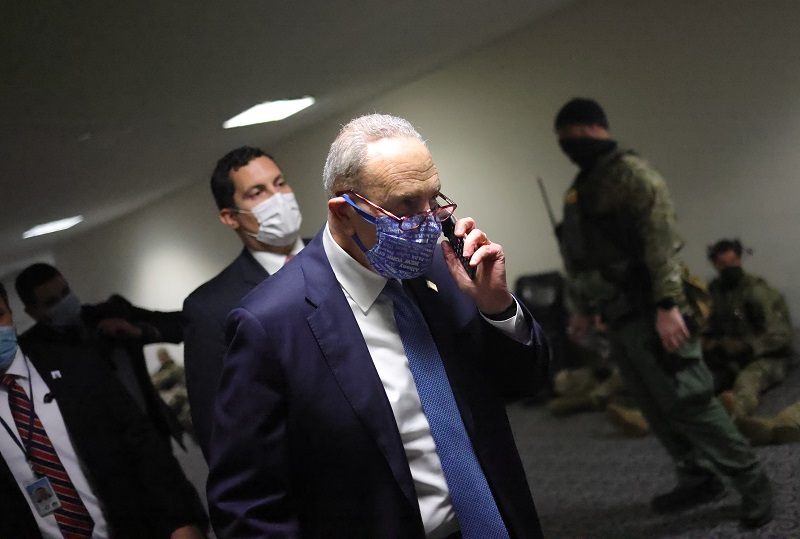Politics
What Democratic control of the Senate could mean for VC
January 11, 2021
After winning a pair of runoff elections in Georgia last week, Democrats seized narrow control of the Senate. The outcome shifts the outlook for legislation over the next two years in ways that could deliver wins and losses for the venture capital industry.
The shift in party power gives the reins to Sen. Chuck Schumer, the Senate’s top Democrat, who gets control of the chamber from outgoing majority leader Sen. Mitch McConnell. Schumer will soon have authority over what bills will and won't be heard and ultimately voted on.
Schumer's powers will increase the likelihood of votes on legislation related to climate change, immigration reform, economic stimulus and taxes—each of which could impact venture capital.
Clean energy legislation, one of President-elect Joe Biden's chief platform priorities, will still have to appeal to moderates and could be wrapped into a broader economic package, said David Miller, managing director of Clean Energy Ventures.
"The key [for the Biden administration] will be to focus on the economic growth enabled through the support of clean energy innovation and deployment," Miller added. Cleantech startups would likely benefit from any incentives to reduce carbon emissions.
Immigration reform could also be on the agenda, and many in the venture capital community have supported relaxing rules for foreign entrepreneurs and tech workers.
The National Venture Capital Association has pushed for a startup visa program that would allow foreign nationals to work in the US if they are able to create jobs. Similar programs are in place in the UK, Canada and Australia.
Biden has also promised an increase in H-1B visas for skilled workers, a program that President Trump has restricted. At the end of last year, Trump extended a ban on immigrants coming to the US on work-based visas and green cards. And the Department of Homeland Security recently revised rules for the program, giving priority to higher-salaried workers and doing away with its lottery process.
“The easiest thing for Biden's administration to do is to reverse all the executive orders that were put into place, including restrictions on H-1B visas," said Lex Zhao, a partner at One Way Ventures, which invests in tech companies founded by immigrants.
But the Democrat's majority—a 50-50 split with Republicans, making Vice President-elect Kamala Harris the tie-breaking vote—won't necessarily empower the party to pursue its most ambitious agendas because a Democratic majority isn't guaranteed on every piece of legislation, and Republicans could delay votes through a filibuster.
"You still have to get moderates on board," said Justin Field, senior vice president of government affairs at the NVCA.
Democratic control also means that less VC-friendly tax measures, which include changes to capital gains and carried interest, stand a greater likelihood of passing.
Field thinks capital gains, the tax rate applied to investment income, is unlikely to change given the current makeup. But some politicians are likely to push for a tax increase on carried interest, the share of profit in an investment taken by a private fund's general partner.
On the innovation front, Schumer's position improves chances that the innovation-focused Endless Frontier Act could pass, Field said.
The bipartisan bill, introduced by Schumer and Indiana Sen. Todd Young last year, would allocate $100 billion in spending to basic research over five years through an expansion of the National Science Foundation. Government investments in science and technology research can lead to breakthroughs that startups later try to commercialize.
Priyamvada Mathur contributed to this report.
Comments:
Thanks for commenting
Our team will review your remarks prior to publishing.
Please check back soon to see them live.